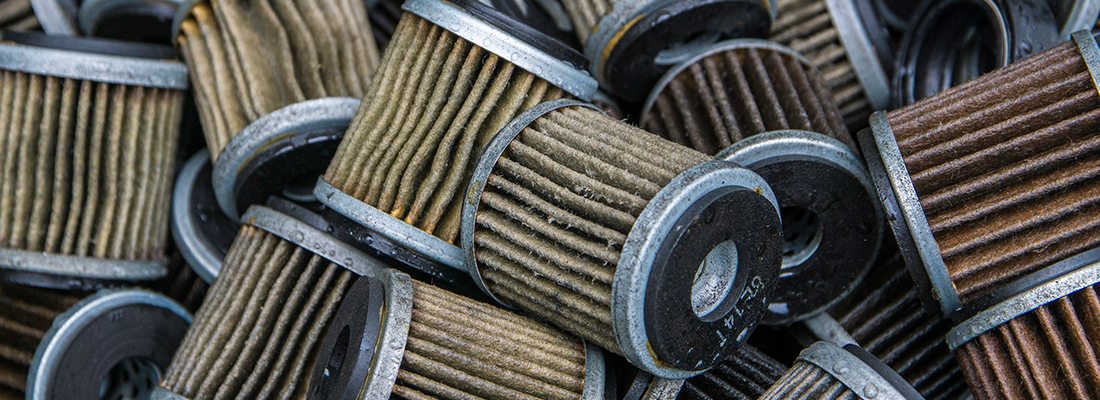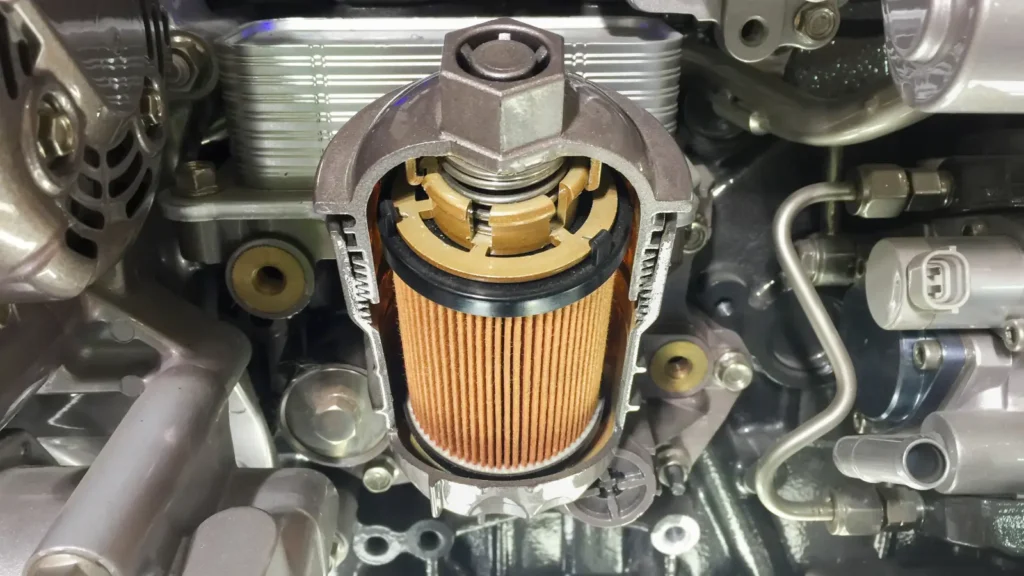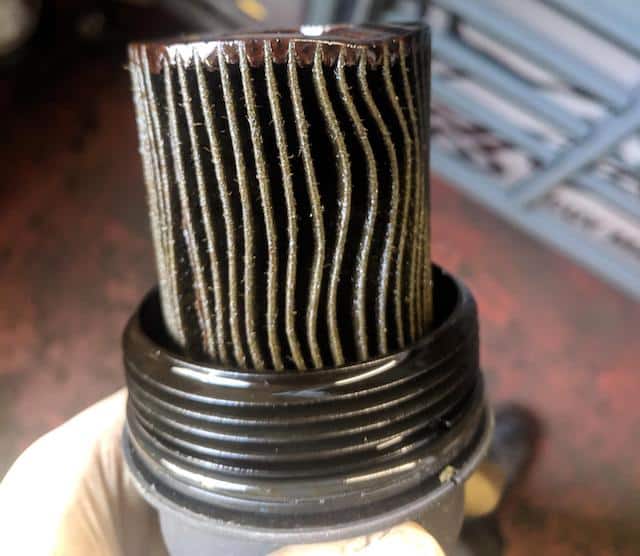The humble oil filter might seem like a simple component of your vehicle, but choosing the right one can mean the difference between a healthy engine and a costly repair bill. While many drivers focus primarily on selecting the right motor oil, the oil filter plays an equally vital role in protecting your engine [Learn more]. Let’s explore why selecting the correct oil filter is one of the most crucial maintenance decisions you can make for your vehicle [How often to replace your filter].
The Cost of Not Choosing the Right Oil Filter
Selecting the wrong oil filter isn’t just a minor oversight – it can lead to serious and expensive consequences. A low-quality or incorrect filter can result in engine damage that costs thousands of dollars to repair. Consider this: the average engine replacement costs between $4,000 and $7,000, while a quality oil filter typically costs only $10 to $30. The minimal price difference between a premium filter and a budget option becomes insignificant when compared to potential repair costs.
The most common expenses resulting from poor filter choice include:
- Complete engine replacement: $4,000 – $7,000
- Major engine repair: $2,500 – $4,000
- Cylinder head replacement: $2,000 – $3,000
- Oil pump replacement: $1,000 – $1,500
- Bearing replacement: $2,000 – $3,000
Protection Against Engine-Killing Contaminants
Your engine operates in a hostile environment filled with potentially damaging particles. Every minute your engine runs, it generates metal shavings, carbon deposits, and other contaminants that can cause serious damage if not properly filtered. A high-quality, correctly specified oil filter acts as your engine’s first line of defense against these harmful particles.
Common engine-damaging contaminants that quality filters catch include:
- Metal particles from normal engine wear
- Carbon deposits from combustion
- Dust and dirt from the environment
- Fuel residue and soot
- Oxidized oil particles
Different oil filters have varying levels of filtration efficiency. Premium filters can capture particles as small as 25 microns (about one-third the width of a human hair), while lower-quality filters might only catch particles twice that size. This difference in filtration capability can significantly impact your engine’s long-term health and performance.

Impact on Oil Flow and Pressure
Choosing the right oil filter isn’t just about catching contaminants – it’s also crucial for maintaining proper oil flow and pressure. Every engine is designed to operate with specific oil flow requirements, and using the wrong filter can disrupt this delicate balance. A filter that’s too restrictive can cause:
- Reduced oil flow to critical engine components
- Increased engine wear during cold starts
- Poor performance under high-load conditions
- Premature filter bypass activation
The Bypass Valve Factor
Quality oil filters include a bypass valve that allows oil to continue flowing if the filter becomes clogged. However, not all bypass valves are created equal. Premium filters typically feature well-engineered bypass valves that open at the correct pressure, while cheaper filters might have poorly calibrated valves that open too early or too late. This seemingly small detail can have major implications for engine protection.

Signs of bypass valve problems include:
- Unusual engine noise
- Fluctuating oil pressure
- Increased engine wear
- Poor performance
- Oil contamination
Temperature and Pressure Resistance
Modern engines operate at higher temperatures and pressures than ever before. A quality filter must maintain its structural integrity under these demanding conditions. Lower-quality filters might collapse under pressure or deteriorate in high temperatures, leading to filter failure and potential engine damage. The wrong filter choice could mean the difference between reliable operation and catastrophic failure.
Warranty Protection
Many vehicle manufacturers specify certain oil filter requirements to maintain warranty coverage. Using the wrong filter – or one that doesn’t meet manufacturer specifications – could void your warranty. This becomes particularly important for newer vehicles still under factory warranty protection.
Warning signs your filter isn’t performing properly:
- Dark or dirty oil shortly after an oil change
- Declining engine performance
- Unusual engine noises
- Low oil pressure warnings
- Excessive exhaust smoke
- Reduced fuel efficiency
The False Economy of Cheap Filters
Some drivers try to save money by choosing the cheapest available oil filter. However, this approach often proves more expensive in the long run [How to choose the right filter]. Low-quality filters typically:
- Need more frequent replacement
- Provide less effective filtration
- Offer reduced engine protection
- Risk premature failure
- May lead to increased engine wear

Synthetic Oil Compatibility
With more vehicles requiring synthetic oil, filter choice becomes even more critical. Synthetic oils often have different flow characteristics and can expose weaknesses in lower-quality filters. Using the wrong filter with synthetic oil can negate many of the benefits these advanced lubricants provide.
Key benefits of matching the right filter with synthetic oil:
- Extended oil life
- Better cold-weather performance
- Improved high-temperature stability
- Enhanced engine protection
- Optimal oil flow characteristics
Modern Engine Demands
Today’s engines feature tighter tolerances and more complex designs than ever before. Direct injection, variable valve timing, and turbocharging all place increased demands on your oil filter. These advanced technologies require proper filtration to function reliably and maintain performance.
Professional Insights
Mechanics and engine builders consistently emphasize the importance of quality oil filters. Their experience shows that engines using premium filters typically exhibit less wear during teardowns and maintain better oil pressure throughout their service life.
Making an Informed Choice
Understanding why filter choice matters is just the first step in protecting your engine. With so many options on the market and critical factors to consider, it’s essential to take the time to research and select the right filter for your specific vehicle. Consider your driving conditions, manufacturer recommendations, and maintenance schedule. Remember that while price is a factor, choosing based solely on cost could end up being far more expensive in the long run. The small investment in time to understand your needs and money to purchase a quality filter will pay dividends in engine protection and performance.
The Bottom Line
The importance of choosing the right oil filter cannot be overstated. While it might be tempting to save a few dollars on this seemingly simple component, the potential consequences of choosing the wrong filter far outweigh any short-term savings. Your engine represents a significant investment, and protecting it with the right oil filter is one of the most cost-effective insurance policies you can buy.
Remember: A quality oil filter is not an expense – it’s an investment in your engine’s longevity and performance. Take the time to understand your vehicle’s requirements and choose a filter that meets or exceeds those specifications. Your engine will reward you with reliable service and longer life.